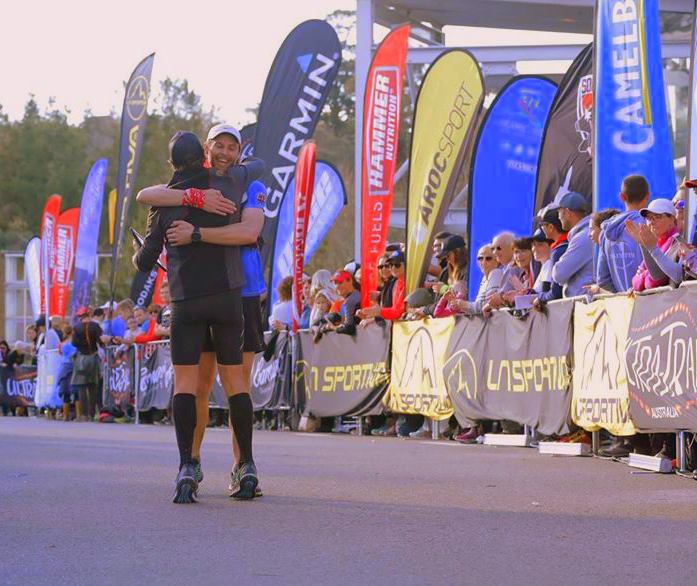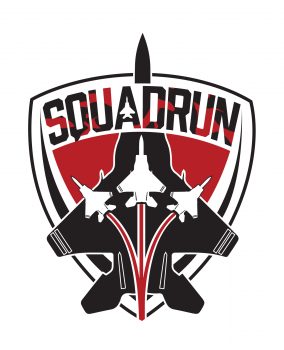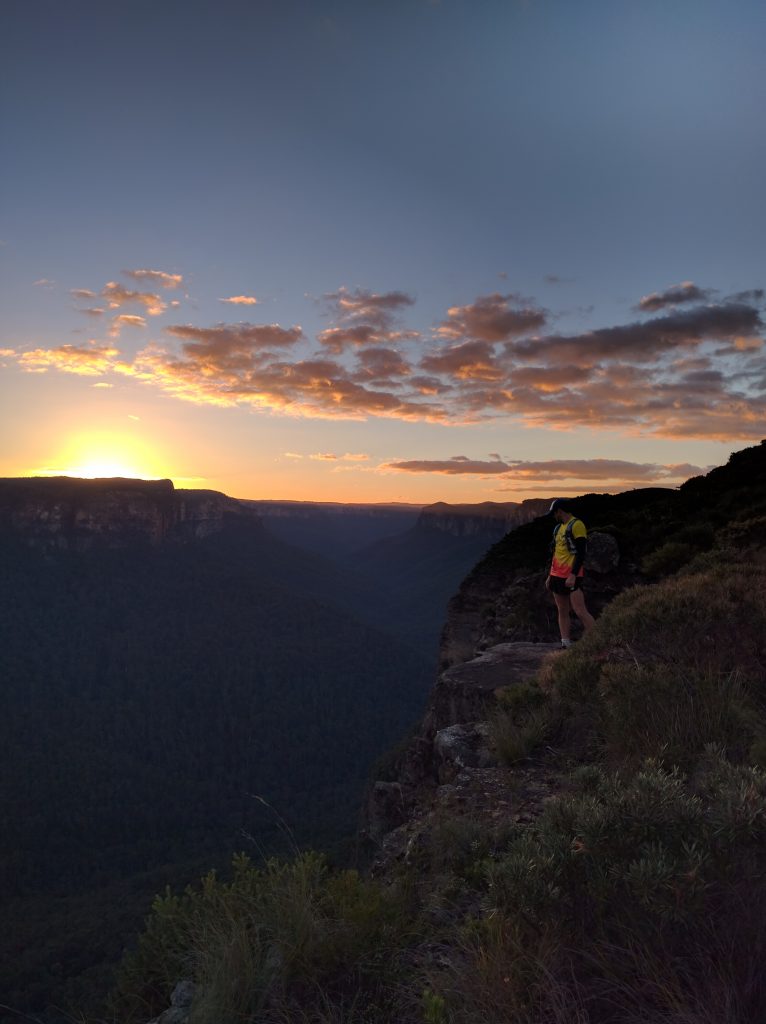
Mindset, in my opinion, is the final part of the puzzle piece when it comes to working towards, and finishing, a long distance run.
I like to think of your training as putting the ingredients in, mixing it up, and baking a big old tasty cake.
Race day is the bit when you get to put the icing on the cake.
All of the hardest work is done.
The months of training.. getting out there in all weathers.. juggling your commitments to fit it in.. adventures that have made you marvel at the wonders of nature AND also probably wonder what the heck you were doing and why you didn’t choose a better way to spend your spare time.
Jokes aside, all of that is done, and banked.
Now is the time where you get yourself organised both mentally and physically.
The week before race day get all of your compulsory gear ready and organised. Work out where and how you are going to pack it. Have your food portions and drop bags organised.
Know what you need to take and when.
If you have crew, chat with them, write things down so that they know and are prepared too.
If they aren’t runners then prepare them for dishing out a bit of tough love.
A couple of the best lines I have heard when it comes to crewing came from a runner and crew at UTA, said runner came into QVH feeling a bit sorry for herself.
Her crew (Alana and Liv) grabbed her by the shoulders, looked her straight in the eye, and said ‘you’re hurting, you’re not hurt’.
Another line I like when it comes to ultra’s is ‘no sh!t quits’.
Sure, if you are injured and putting yourself (or others) at risk that is a different story.
Be prepared though, running a long way does come with some discomfort, it’s how you manage the self-talk around that on race day which counts.
In the days leading up, up the rest, get some good food and good sleep banked.
The night before race day it is TOTALLY normal to spend pretty sleepless, your brain is well aware that you are getting up early tomorrow and having a big old adventure.
One night of very little sleep is no big deal.
It doesn’t affect performance, so there’s no need to spend energy worrying about it.
Prior to race day have a look through your course, watch videos, look at the elevation profile, consider what you want at checkpoints both from a fuel or gear perspective.
Imagine yourself passing through.
Have some words to go with these points.
Perhaps it’s ‘at this point I’m about to go off into the night, feeling brave and ready to take on the next part of the challenge’. Or maybe it’s ‘I’ll be ¾ of the way through my race here and I’ll be feeling tired and determined, knowing I will get that last bit done’.
Think about the people who have supported you in getting to the race start and aim to do them proud. Bring them to mind during the race to keep you motivated too.
Work out what your goals are.
Black and white time goals can be the pits as if you aren’t hitting it then you can feel pretty crap about it and it can (if you let it) derail your race.
Some people also have no experience of the course and are just making a guesstimate rather than have it based on any real reasoning. The real goal should be giving things your best on race day and feeling a sense of achievement from that, whatever the time ends up being.
We like to encourage athletes to have a process goal.
How do you want to go about your race?
It might be to be the person that has the most fun out there, it might be to move efficiently, it might be to always give things your best, whatever it is have that to think about and refer back to during the race ‘my goal is to be the person that has the most fun today, what can I do right now to help me achieve that?’
Another good thing to have to ‘go to’ is a value.
Think about what you value.
For me I value determination and perseverance, or in layman’s terms ‘getting sh!t done’. When push comes to shove I put my chin up and can grind things out and get it done.
I finish what I started.
‘When the going gets tough, the tough get going’
This is something I want to live by.
‘Overcome’ is a word I thought best summed up one lovely lady I work with. Over the past 18 months there have been many things we have all had to overcome, and any challenges thrown at you during the race possibly pale in comparison to what you have already overcome.
If things get challenging, accept and acknowledge feelings or thoughts but focus on the task at hand.
Vajin has described a time when his legs were hurting and he said ‘okay legs I hear you but I’m going to keep on going’.

He has also talked about when those thoughts come seeing them as a storm at sea, there may be dark clouds, thunder, rain, and high winds but you can drop down a few metres below the surface and there it is calm.
Stay in the present moment.
Focus on what you need to do.
Tune in to your breathing, your footsteps, cadence, the line you are taking, how your fueling and hydration is going, body position, and stay in the now.
This is called association. This is the ideal to aim for.
The opposite is disassociation. It’s a way to keep yourself distracted. It’s ok to go here too if it helps you, find something that works for you and roll with it.
Perhaps it’s running through the alphabet with adjectives to describe yourself, e.g ‘A for adventurous, B for brave, C for candid..’. It might be repeating a phrase or mantra, it might be counting steps, it could be admiring scenery, or chatting to a new friend on the trail.
I encourage you now to work through these goals.
Think about why you chose to do this event, think about what really matters to you, the way you want to conduct yourself out there, the value that you want to live by and want to be known for. Keep these at hand when you are having those challenging moments in your run so that you can get the most out of yourself on race day and do that training justice. Giving yourself a well iced cake and a sweet day out.

